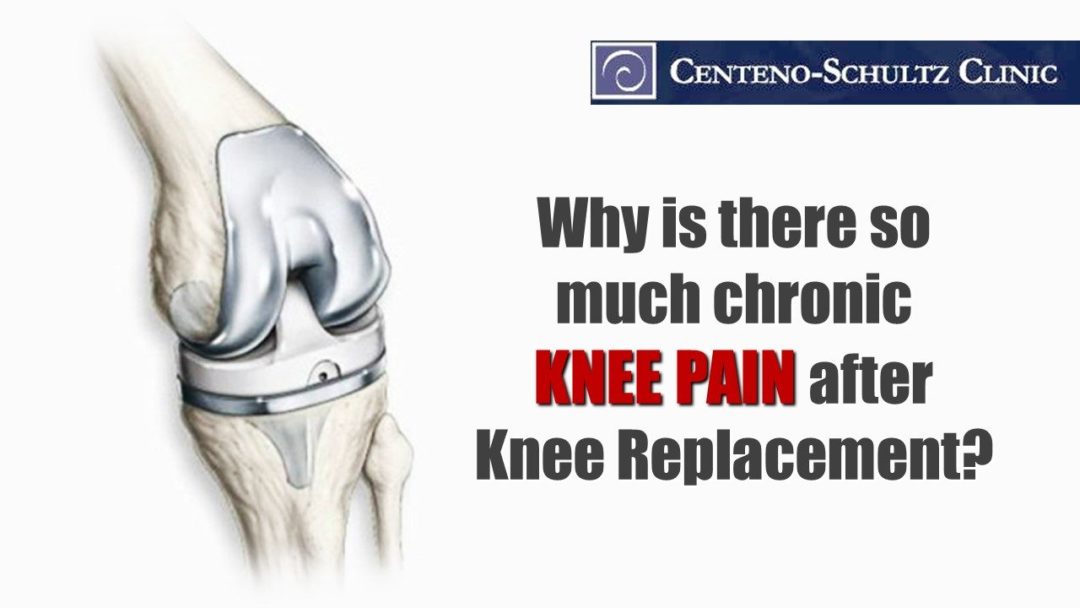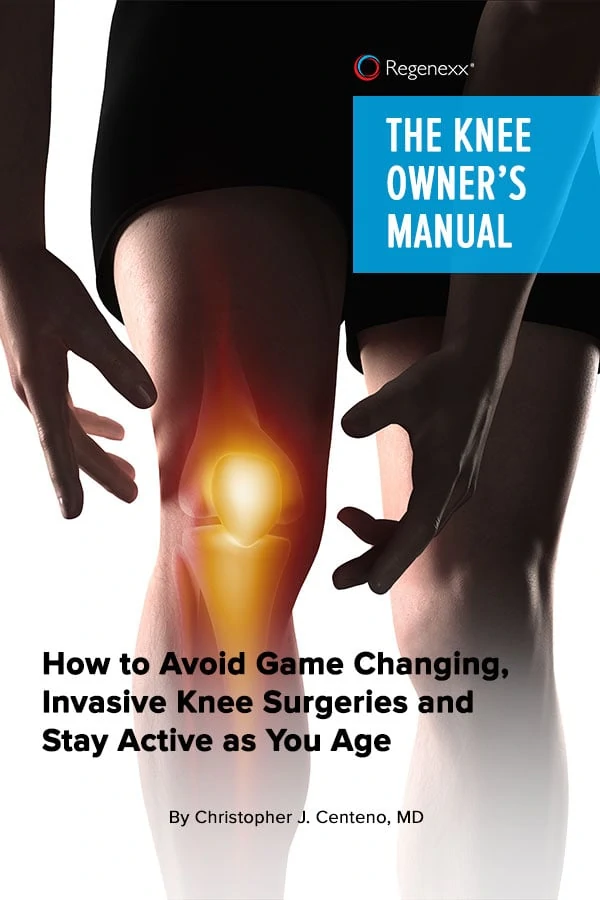The vast majority of patients who make the decision to undergo a knee replacement do so because they are in pain. Perhaps they’ve lived with knee pain for years. Combine that with a doctor who’s telling them a total knee replacement is their last option, and it’s easy to understand why someone might believe surgery is their only remaining hope for knee-pain relief. Unfortunately, a high percentage of patients who make the choice for a knee replacement are discovering this is a false hope as knee pain often still exists post surgery and beyond.
For this reason, we put together this list of 5 things you need to know about knee pain after a knee replacement.
1. Knee Pain After Knee Replacement More Common Than You Think
Knee pain following a knee surgery is likely more common than you realize, with studies showing as high as 50% or more of patients still reporting pain a year or more after their knee replacement. Additionally, research has also shown persistent knee-pain levels in some patients as high as 5 out of 10, with 3 being around average. Of additional concern is that pain still persists even three and four years following surgery with 15% reporting severe, and even extreme, chronic knee pain.
2. Pain Meds Still Common One Year After Knee Replacement
This one pairs nicely with number one above. Another clear indicator that knee pain after knee replacement is so common is that 47% of patients actually began taking painkillers for the first time within a year following their surgery. Younger knee-replacement patients (those under 55), likely due to younger patients naturally being more active, needed more drugs to control their pain and most of them who had a partial knee replacement needed another one at around five years post surgery.
3. If You Were on Opioids Prior to Surgery, Expect More Pain After Surgery
If you’ve been struggling with knee pain for a long time, you may have given up your over-the-counter painkillers for powerful prescription narcotic painkillers, such as opioids (e.g., hydrocodone, Percocet, codeine, etc.). Now that you are at the point where you may be considering a knee surgery to address your knee pain, your opioid use can be particularly troublesome. Why?
The problem here is twofold. First patients who have taken opioids at any point within the two years prior to knee replacement (even if they aren’t still being taken) have been shown to actually have more pain than those who did not take the drugs. Second, patients who undergo knee surgery and begin or continue taking narcotics have a five times greater chance of developing a narcotic addiction.
Want to Get Back to What You Love, Without Surgery and Medication?
4. If You Have Back Pain Prior to Surgery, Expect More Pain After Surgery
This one is particularly disturbing. If you are considering knee surgery, beware if you also have low-back pain because there’s a high likelihood you’ll still have knee pain and other knee problems after your knee surgery. Why? Because your knee pain may actually be caused by a problem in your low back. Yes, you may be considering having your knee replaced when your knee isn’t even the real problem!
The nerves that supply the lower limbs, from the hips all the way to the toes, branch off the lower spine. So a problem in the low back (e.g., a slipped disc, spinal stenosis, etc.) can pinch or put pressure on the nerve that supplies the knee, creating pain and other issues in the joint. In fact, there may be an injury in the spine that doesn’t create pain there at all but instead refers it down the nerve branch and into the knee. So back pain or not, it’s always a good idea to have the back checked when there is knee pain. If your knee pain is caused by a problem in your back, a knee replacement isn’t going to fix it.
5. Allergies Increase Your Chance of More Knee Pain After Knee Replacement
The obvious thought here is that there is a greater chance of pain if you are allergic to the materials in the artificial joint used to replace your knee, and while that is certainly known to be true, there is more. Having any kind of multiple allergies, not just metals, can be a sign that you will have more pain and poorer outcomes following a knee replacement.
If your reason for considering a knee replacement is to address your knee pain, you may not achieve the result you are hoping for as knee pain after knee replacement is the single most common complication to the surgery. Keep in mind that despite what you’ve been told, a surgical replacement of your knee may not necessarily be your last option. Before surgery and after conservative care, consider our knee replacement alternative, the Percutaneous Knee Arthroplasty (PKA), for knee OA.

